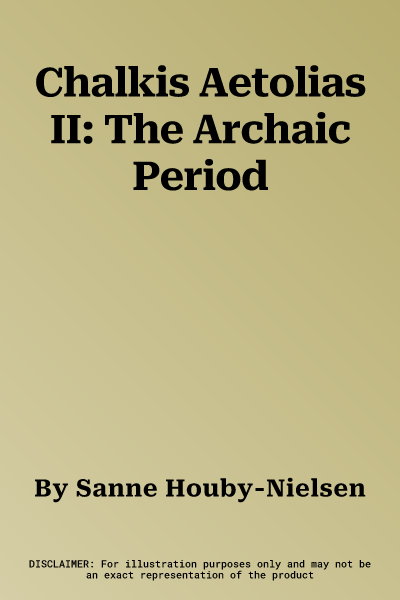Homeric Chalkis is situated on the coast of Aetolia at the very
'gateway' of the Gulf of Patras. The foundation occurred during an
important period in early Greek history when trade and movement of
peoples along the Gulf intensified with a resulting strong pull to the
coast. Well-preserved stratigraphies date the foundation to the early
seventh century BC and testify to a flourishing settlement in the sixth
century lasting till the early fifth century BC when the site was
temporarily given up. Walls and roads follow a rectilinear layout. A
broad spectre of pottery shapes and wares attest to innovative local and
regional workshops already from the onset of the settlement. Alongside
the pottery, tools for complex textile manufacture were found in all
houses, among which were many small, pyramidal loom weights and spools.
These findings indicated a high degree of experimental weaving
techniques and demonstrated how the courtyard house, as a new house
model, was particularly well suited to accommodate this manufacture,
probably mantels. The results therefore offer important new evidence on
relations between gender behaviour and Greek houses. The catalogue is
richly illustrated with profile drawings, plans, black-and- white and
colour photos and accompanied by discussions of the material.

